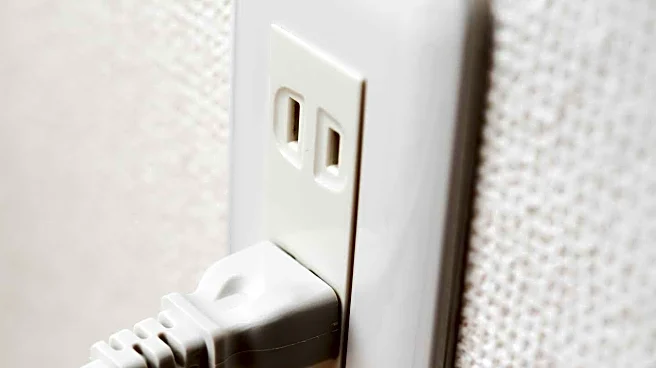What's Happening?
Paul Martinez, owner of Electrified NYC, has issued a warning regarding the use of extension cords and power strips for high-power appliances. Martinez emphasizes that devices with heating elements, such
as space heaters, air fryers, and coffee makers, should not be connected to extension cords due to the risk of fire hazards. He advises that appliances drawing more than 1,500 watts should be connected to dedicated circuits. Common extension cords, like 14-gauge cords, can handle up to 1,800 watts, but are not suitable for high-power appliances. Martinez highlights the dangers of 'daisy chaining' extension cords, which can lead to overheating and fires. He also notes that refrigerators and air conditioning units, despite using less power, should not be connected to extension cords due to their constant operation.
Why It's Important?
The advice from Martinez is crucial for preventing electrical fires, which pose significant safety risks in homes. High-power appliances connected to extension cords can lead to overheating and potential fires, endangering lives and property. This guidance is particularly relevant for older homes with limited outlets, where residents might resort to using extension cords. Understanding the limitations of extension cords and ensuring appliances are connected to appropriate circuits can mitigate fire risks. This information is vital for homeowners and renters alike, promoting safer electrical practices and potentially reducing the incidence of electrical fires.
What's Next?
Homeowners and renters are encouraged to assess their current use of extension cords and power strips, ensuring high-power appliances are connected directly to wall outlets or dedicated circuits. Electrical safety campaigns may increase awareness about the risks associated with improper use of extension cords. Additionally, manufacturers might consider designing appliances with built-in safety features to prevent misuse. Local governments and safety organizations could also provide resources and guidelines to educate the public on safe electrical practices.
Beyond the Headlines
The broader implications of this advice touch on the importance of electrical safety education and the need for infrastructure improvements in older homes. As technology advances and the demand for electricity increases, ensuring safe electrical practices becomes more critical. This issue also highlights the need for regulatory standards for appliance manufacturers to include clear guidelines on safe usage. Long-term, this could lead to innovations in electrical safety technology and increased public awareness about the importance of proper electrical connections.










